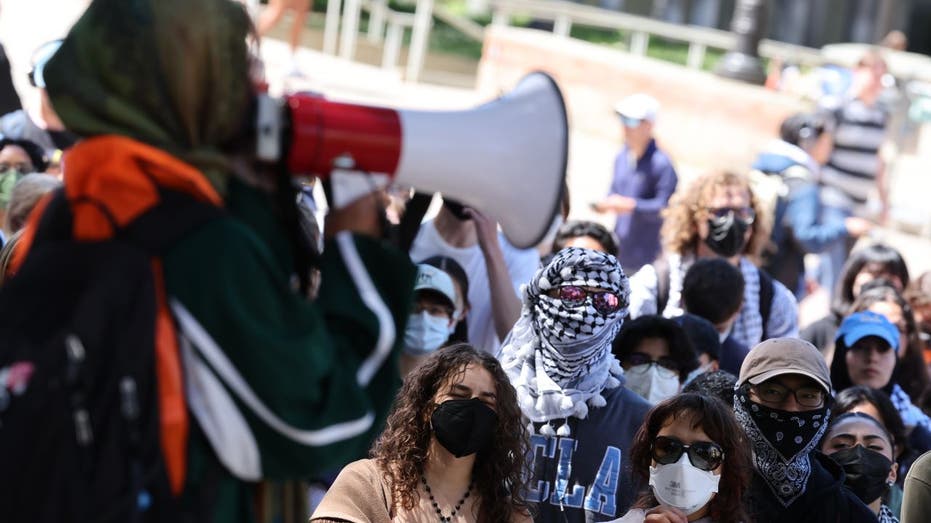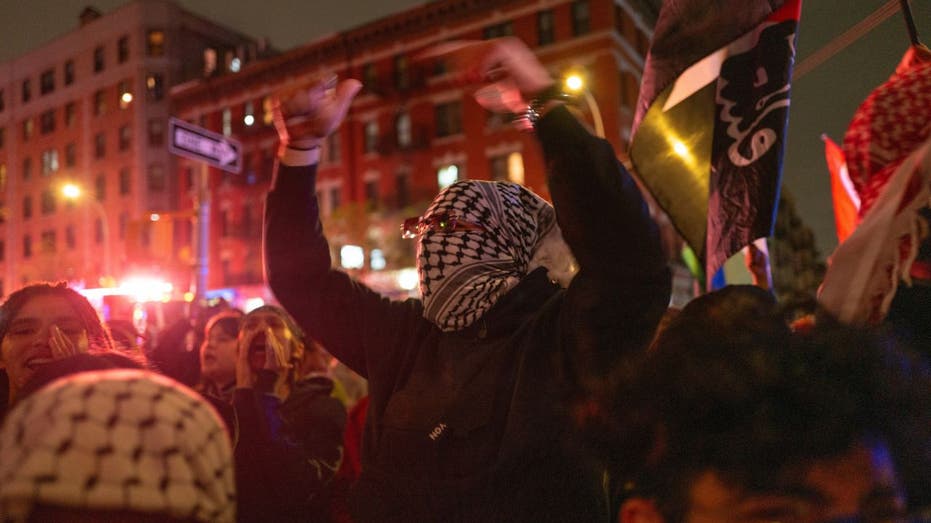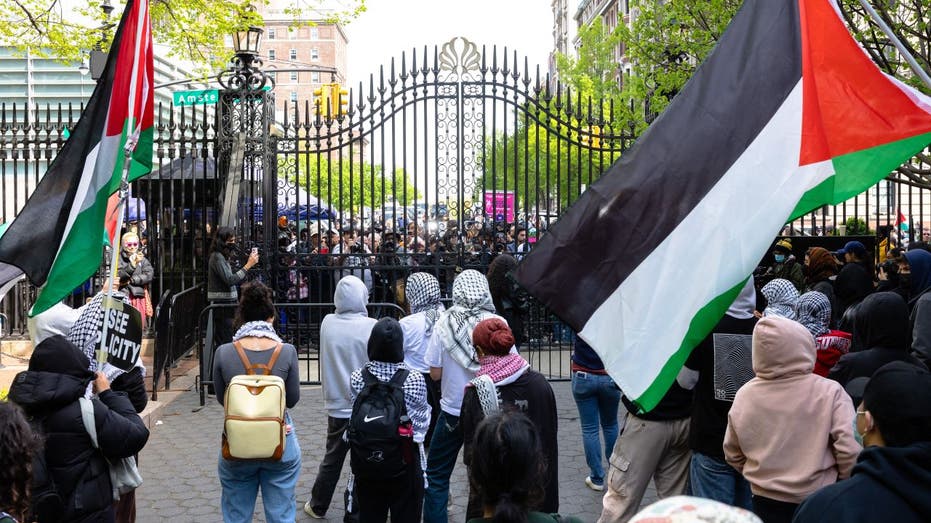Colleges hit with lawsuits over handling of anti-Israel campus protests
Several colleges are facing lawsuits from students who claim the schools' handling of anti-Israel protests violated their rights
Liora Rez reacts to ‘heartbreaking’ anti-Israel protests: The ‘onus’ is on college leaders to stop this
StopAntisemitism founder and executive director Liora Rez reacts to the wave of anti-Israel demonstrations on college campuses nationwide.
Colleges around the country are dealing with the effects of ongoing anti-Israel protests that have disrupted campus life and have prompted lawsuits from students who argue administrators failed in their responsibilities to keep campuses safe.
Several such lawsuits have been filed against schools in recent weeks, including proposed class action lawsuits against Columbia University and the University of California, Los Angeles (UCLA), and an individual suit brought by a Rutgers University student against the school. The Columbia suit is a proposed class action in federal court, while the Rutgers and UCLA cases were filed in state court.
Paul Mauro, a legal expert who held leadership roles in NYPD's legal and intelligence bureaus and is a contributor to Fox News and Fox Business, said in an interview that the lawsuits campuses are facing generally fall into two categories: those alleging civil rights violations and those accusing the schools of failing to uphold contractual obligations.
"Students that have been harassed or even assaulted, or in any way had their rights infringed upon on the basis of religion, race, protected class," are likely to bring civil rights suits against the schools, Mauro explained. "That's going to be the class primarily of Jewish students, who we've seen in videos walking across campus and being confronted because they're wearing a yarmulke or something like that. And so those are almost certainly going to be federal cases that ground in civil rights."
BUSINESS LEADERS PRESSED NYC MAYOR ADAMS TO DISPERSE COLUMBIA PROTESTERS: REPORT

UCLA is facing a proposed class action lawsuit over its handling of anti-Israel campus protests. (Brian van der Brug / Los Angeles Times via Getty Images / Getty Images)
"There is another class of cases which will be contractual, and those are going to be students who are not suing on the basis of civil rights, but are suing on the basis that we've paid for a certain level of education and a certain educational experience, and we were denied it because the university did not take the action that it could have and should have," Mauro said.
Students considering filing a civil rights lawsuit against the university or joining a pending class action suit should take care to document the incidents they plan to cite in their claim in as much detail as possible.
PALANTIR CEO: COLLEGE PROTESTS ARE 'FULL-ON REGRESSION FROM BELOW OUR CONSTITUTION'

Anti-Israel supporters confront police during demonstrations at The City College Of New York (CCNY) as the NYPD cracks down on protest camps at both Columbia University and CCNY on April 30, 2024 in New York City. (Photo by Spencer Platt/Getty Images / Getty Images)
"If you are going to be party to one of these class action suits as a Jewish student – a case that grounds on a civil rights violation – you need to document the instances so you're not just coming in with a he-said, she-said. Get anything you can that will demonstrate what happened to you, where it happened, who did it, see if you can ID the people who did it," he explained.
Mauro noted that protesters have taken steps to conceal their identities at encampments and other demonstrations that have sprung up on campuses to avoid not only potential criminal charges, but potential suspension or expulsion from the college itself, as well as individual legal liability stemming from their actions.
BILLIONAIRE COLUMBIA ALUM LEON COOPERMAN SAYS PROTESTS ARE 'ORGANIZED ANARCHY'

New York police entered Columbia University's campus late April 30, 2024 and were in front of a building barricaded by anti-Israel student protesters, an AFP reporter saw. (Photo by MICHAEL M. SANTIAGO/POOL/AFP via Getty Images / Getty Images)
"That message went out and that's why, as this thing was proceeding, all of a sudden, you began to see students masking their faces and wearing kerchiefs and keffiyeh," he explained. "They don't want to be identified by law enforcement, they don't want to be identified by the administration and expelled or suspended. But they also didn't want to be caught up in a lawsuit."
Universities that have been hit with lawsuits related to civil rights or contractual violations stemming from the campus protests opted against commenting specifically on the filings in response to FOX Business' inquiries.
GET FOX BUSINESS ON THE GO BY CLICKING HERE
UCLA told FOX Business that, "We are aware of the filed complaint. UCLA remains committed to supporting the safety and wellbeing of the entire Bruin community. Because this filing involves ongoing litigation, we are unable to comment further."
Rutgers and Columbia declined to comment on pending litigation.




















